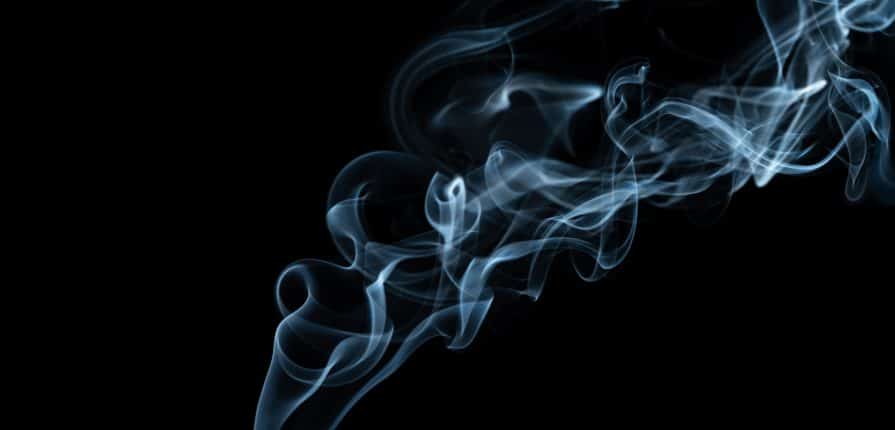In Oklahoma, the cold can really sneak up on you, and every year, thousands of Oklahomans find themselves cranking on their heater when they least expect it. For many people, this is the first time they’ve looked at or touched their heater since last winter.
While you expect your furnace to circulate fresh, warm air throughout your home the minute you turn it on, it’s not uncommon for that first burst of air to be accompanied by some funky smells. Whether they’re strong or subtle, some smells may be completely harmless, but others may be cause for alarm. It’s important to know which smells are hazardous and which smells are perfectly normal in order to keep your family safe and warm all winter long.
What are furnace smells I should not ignore?
Certain smells are a sign that something is wrong with your unit. Here’s what to do if:
Your furnace smells like something plastic is burning.
Electrical burning can often smell like hot plastic burning and is an indicator of a potentially serious problem. As with all motors, wear and tear on the blower motor of the furnace is to be expected as your unit ages, which can lead to overheating. If the motor is overheating, that heat is often intense enough to melt electrical wires or components and produce sparks, producing this unique smell. If it isn’t taken care of and you continue to run the unit, the overheating could eventually cause a fire in your unit, or worse, your house.
What to do if you smell plastic burning while your heater is running: Turn off your furnace immediately and call an HVAC repair technician. Most furnaces have safety features that shut themselves down upon overheating. However, it is recommended that you not depend on this feature as it could malfunction if the motor is experiencing problems. The motor will likely need bearings or other components replaced to ensure the unit is operating effectively and most importantly, safely.
Your furnace smells like rotten eggs.
Natural gas and propane can often smell like rotten eggs because gas companies add sulfur to their products in an effort to alert their consumers of a leak. Gas leaks generally (but not always) are caused by leaking gas valves or gas connections or a cracked heat exchanger, the component responsible for transferring heat from the gas to the metal walls of the heat exchanger. If you smell rotten eggs, you are likely smelling the sulfur, which means there is an excess of natural gas in the air you and your family are breathing. Not only is this dangerous to your health, but gas is highly combustible and can easily cause a house fire.
What to do if you smell rotten eggs while your heater is running (or even if it isn’t): If you can safely turn your gas off by operating the gas shutoff valve to your home, do so. Next, leave the property immediately and call your gas supply company and emergency services. Once the gas supply has been shut off, call an HVAC repair technician before turning the furnace back on. Because the consequences of a natural gas leak can be so severe, it’s highly recommended that a professional help you find the solution. Attempting a natural gas repair on your own can result in property loss, serious injury or even death.
Additional notes of caution: If you or a family member who has been inside the home have experienced nausea, headache, dizziness, breathing issues, skin irritation or vomiting, go immediately to the nearest emergency room; they may be signs that you have experienced oxygen deprivation.
Your furnace smells like car exhaust.
If you’re smelling something that resembles car exhaust or smoke, you likely have a venting issue, which can be dangerous. When natural gas is burned in an enclosed space, such as inside a heat exchanger, its by-products or combustion gasses need to be vented properly so they don’t enter your home.
What to do if you smell car exhaust while your furnace is running. Shut off the unit immediately, open doors and windows to circulate fresh air throughout your house, and call a professional HVAC technician to resolve the venting concern.
Additional notes of caution: One by-product of natural gas combustion is carbon monoxide. It is odorless and colorless and difficult to detect. Placing carbon monoxide detectors throughout your home and near your gas burning appliances can alert you to any gas leaks or combustion by-products that are venting properly. If you become dizzy, nauseous, and/or have a severe headache but you can’t figure out why, leave the home, call emergency services to your residence and head to the ER. You may be suffering from carbon monoxide poisoning, which can be deadly.
Is it normal for my furnace to smell?
Two common furnace smells you may notice when you first turn on your unit that are not cause for alarm are:
Dirty or moldy socks.
“Dirty sock syndrome” refers to a smell that resembles a locker room or a dirty sock. This damp scent reeks of mold and mildew and is indicative of bacteria and mold growth that has built up in the evaporator coil. This smell can be produced when turning on the air conditioning unit as well as the heater. While this smell is certainly unpleasant, it’s not likely harmful unless someone living in the house suffers from allergies or has a compromised immune system.
What to do if you smell dirty or moldy socks when your heater is running: There are a few steps you can take at home to remove the smell before calling an HVAC technician. Start by changing the filter and cleaning the drip pan. If these remedies aren’t effective, call a technician to come clean out the ducts and evaporator coils.
Dust and dirt.
The most common smell reported when turning on the heater for the first time is the smell of burning dust, which also often resembles a faint smoky smell. When the furnace has been inactive for an extended period of time debris, dust and dirt can build up within the unit and throughout the air ducts and vents.
What to do if you smell dust, dirt, or smoke when your heater is running: As the furnace warms up for the first few times, this dust slowly burns away, producing the smell, but it will likely go away after the first several uses. However, if it does persist, you can start by changing your air filters. You also may benefit from a cleaning service performed by a licensed HVAC technician.
Furnace Smell Solutions from Suntech Heat and Air
Dependable and quality HVAC servicing is critical to keep your family warm and safe during cold Oklahoma winters. With 24-hour emergency support, no after-hours service fee, and fast, flexible scheduling, Suntech Heat and Air is always ready to help solve your furnace smell problems. We can even help you avoid them altogether with pre-winter furnace tune-up specials. Our 15-point inspection checks all ignition, burner, and ventilation systems as well as identifies any possible gas or carbon monoxide leaks, so you can be confident you and your family will stay comfortable and healthy in your home.
If you have questions about the smells coming from your furnace or want to schedule a heater tune-up, call Suntech Heat and Air today at 405-348-9743.




